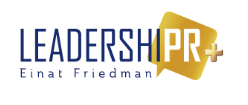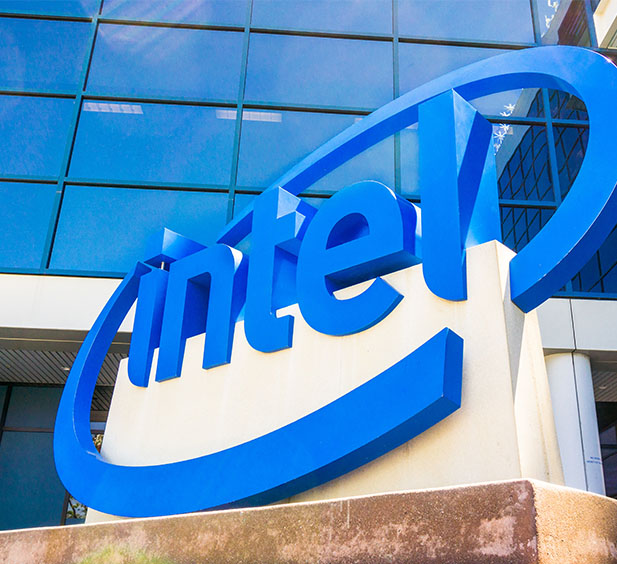Yiftah Yoffe, VP of Human Resources at Check Point Software Technologies, talks about the HR Director’s eternal conflict, about preserving employees in such intense competition for talent, and about the need to balance the company-director-employee triangle.
Gila Hipsh (Photos: PR Check Point) | Directors | September 2019
Yiftah Yoffe Photo: Ofer Vaknin
Personal example: “I will not demand from someone else something I don’t do myself. If we are in the process of evaluating employees, for example, we need to make sure that the managers in the field meet schedules. My priority is meeting schedules because a hands-on organizational culture such as Check Point’s starts with such basic things. You need to invest a lot of your time to know the data as an essential condition for success.”
Loyalty Challenge: “The HR director is the “servant of many masters,” who do not necessarily have similar needs. The HR person is identified, first and foremost, with the organization and its needs, and rightfully so. Human Resources is a classic administrative body. Its director is an administrator in charge of promoting the organization itself, its strategy, vision – both short and long term – and its business needs. But the organization is an amorphous entity and is built of two real ‘families’ of clients: managers and employees.
“Working with managers is challenging and entails an understanding of the managers’ needs as well as developing trust and appreciation for them. There are often built-in gaps between the HR director’s needs and agenda and the needs of the other managers, the organization, and the employees.”
Balancing the forces in the organization: “Working with the employees creates a challenge in terms of quantity as well as quality. Quantity since the number of employees and their varied, at times contradicting needs, will always outweigh the ability of the HR director to provide them with a response. Quality, since the employees’ needs aren’t necessarily aligned with those of the organization, as do the HR director’s needs, creating a potential for a built-in gap. This triangle of organization-managers-employees is viewed as a built-in conflict since it doesn’t have a “school solution”. The HR person is required to balance those forces while discretion, as well as intuition and experience, lead them when choosing the weight given to each parameter.”
Photo: PR Check Point Check Point Building
The added value
Combat support and not a fighter: “The HR person is combat support, not a fighter, and being smart and effective combat support is indeed a challenge. However this is the HR director’s added value, which arises from the lateral acquaintance with the organization and its needs, and the ability to ‘connect the dots.’ An HR person always needs to remember that they are not the ones running the organization, but instead, the professional directors are. Once, in one of the most intense meetings with the senior administration of the development center, I suggested a certain direction that did not conform with the direction one of the vice presidents tried to lead. He immediately responded: ‘Would you like to run the organization instead of me?’ In his eyes, I crossed the line. It was like getting a warning at a football game… a chance to learn how to better balance my place in the dialogue.”
“At the same time, and we must never forget this, we are trusted with the expertise where we are “the fighters.” Issues such as organizational development, learning, wage policy, performance evaluation and human resources strategy are built by human resources entities and are integrated into the organization.”
Satisfaction and frustration
The challenge of influence: “In many places, we are required to create influence in the absence of formal authority. In many situations, we work with people who are higher than us in the organizational hierarchy, but we are expected to present our agenda to them. It requires outstanding interpersonal skills. There is great satisfaction in the ability to influence, yet quite a lot of frustration along the process. I believe that modesty is a valuable quality for the HR person, and it enables us to be the shadow consultants of the directors for whom we work. An experienced HR person usually has a very well established organizational and managerial world perception. However, what differentiates a good HR person and a great one is the ability to allow the clients to lead the way.”
A defining moment in the company: “The first significant purchase I was involved in as a leader of the HR organization in Israel. Every purchase or merger process involves business complexity. As an HR director, you need to provide your added value concerning the right way to integrate employees in an active company with its organizational process, work processes, and, most importantly, a unique corporate culture.”
“It’s a real complexity that requires you, as a professional, to thoroughly understand “the other side” before offering the right way to convert it to the Check Point way of managing its human capital. This piecing together forces you to be creative and flexible, while in the background, there is a real fear of the acquired company’s leaders to lose the unique character of the company they founded.”
Photo: PR Check Point
Being the good guys
Competing with startups: “The main challenge in recruiting human capital in the cyber industry is presenting our company as a sexy alternative to the dozens of startups who are located here, in Tel-Aviv, in a 5km radius around us. In a startup, the developers are exempt from considering many things, such as taking into account the existing clients.
“As an answer to the wealth of startup companies around us, we consider Check Point as an entity with an endless number of startups. As a large and diverse tech company, we can offer an ocean of careers and fields of interest, in contrast with the “small lakes,” the startups nearby. Check Point is definitely equipped with all the muscles required to fight over the best talents in the industry.”
Staying forever young: “A big challenge. We operate in an industry that forces us to stay young on a technological level. Plus, we are the ‘good guys’ – we enable our clients to work safely in an environment flooded with risks, and it’s fun being the good guys. We have been doing it for the past 26 years, with clear market leadership in a very competitive market. Young students who are finishing their studies and are writing code as Check Point employees – their code is embedded with real clients worldwide. We are all looking for meaning, and this is an actual and tangible meaning for what you do.”
First and last name: Yiftah Yoffe.
Job description: Head of International HR – in charge of Human Resource in Europe, Middle-East, Africa, and the Asia Pacific at Check Point.
Age and family status: 52, married with two children.
Residency: Tel-Aviv
Education: B.A. in Psychology from Haifa University, M.A in organizational behavior from the School of Business Administration at Tel Aviv University, Certificate in family and couple therapy at the Kibbutzim Seminary.
Previous jobs: Organizational advisor for various companies. HR director at Laufer Aviation. VP of Resources at Deloitte Consulting, Israel HR manager at Amdocs. He came to Check Point 6 years ago, where he started as the Israel HR manager and was then promoted to be in charge of the entire “International” region, including all the countries except for Israel and America.
Management motto: Leading by example.
Volunteer work: Still on military reserve duty at the Senior Officer Assessment Center. Served as a public representative at the Forum for Diversity Management; an accompanying consultant to teams at Elam; a member of the advisory committee for Human Resources Studies at Or Yehuda College.
Hobbies: Surfing











